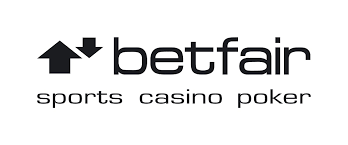Betfair’s New Jersey Sports Betting Exchange Not a US First
Media reports emanating from New Jersey of late center on that state’s ongoing PASPA fight against the US federal government and the US’s major sporting associations, but in recent days a different sort of wagering tale has emerged: Malta-based and US-licensed Betfair has received approval from the New Jersey Racing Commission for what is touted as a first-of-its kind “betting exchange” within the US, allowing horseracing punters to wager against each other more directly, instead of wagering directly against the house. The house — in this case Betfair and Monmouth Park, where the new service will likely first be rolled out. still receive a cut for providing the service.
 Betfair’s approval came about at the most recent hearing of the New Jersey Racing Commission, finalizing an approval process that itself has been four years in the making. Way back in 2011, New Jersey passed its Exchange Wagering Act, another in a series of moves that the state — as with its approval in the same general time frame as its authorization of online gambling — viewed as major steps in making the Graden State the US’s closing gambling equivalent to the European scene, where a far wider range of gambling services are available.
Betfair’s approval came about at the most recent hearing of the New Jersey Racing Commission, finalizing an approval process that itself has been four years in the making. Way back in 2011, New Jersey passed its Exchange Wagering Act, another in a series of moves that the state — as with its approval in the same general time frame as its authorization of online gambling — viewed as major steps in making the Graden State the US’s closing gambling equivalent to the European scene, where a far wider range of gambling services are available.
Betfair was the first to apply for such a license, and this approval, four years later, is the latest step. Betfair has already inked a separate deal with Monmouth Park Darby Development, the Dennis Drazen-headed entity that operates the state-owned facility. And Betfair and Monmouth Park ended up in that handshake deal in 2013 only in a roundabout way, after Betfair’s existing sponsorship of another New Jersey racing facility, Hollywood Park, fell apart when Hollywood itself closed its gates for good.
All these betting-exchange plans have been a long time coming.
So what’s up with the format? If you’re based in the US, you might find it unfamiliar, but the general theme behind such exchanges is to allow bettors to establish the lines and the wagers in a format loosely based on future stock markets. Bettors can choose the wager of their choice, putting it into effect only when certain market conditions or odds become available, and they can increase, decrease or pull their wagers entirely at any time, with the caveat that pre-existing action must still be honored.
All this makes the betting lines much more fluid, and user-based: The bettors are in effect wagering against each other in a market-based format, and Betfair itself collects a fee for each of the transactions that’s consummated. It’s a new deal (in a way) for US shores, although Betfair and other companies have had the service for years in various European markets. Here’s a link to Betfair’s hockey exchange-betting page, for those that would like to snoop around and discover more of the details.
The thing about exchange markets is that the hosting service technically isn’t needed, although that’s a big technicality. The service provides most of the market’s underlying framework and information, and provides the medium through which payments between winning and losing bettors are exchanged. And that later part is where a curious side tale regarding the US marker emerges.
Way back in 2007, a self-decribed “web entrepreneur” based in the Seattle, Washington area tried to launh a simplified form of a betting exchange for US customers, in the belief that it would circumvent existing US laws forbidden sports betting in most of the country. His name was Nick Jenkins and his company was called Betcha.com, and it was, in effect, a betting exchange: Wagerers did so against each other, while Betcha served as the exchange medium for payments and other information.
Betcha was even non-binding, in that the wagers didn’t actually go through the site; instead it was envisioned as something as a giant referral service. Still, as one might expect, Betcha.com didn’t last long. Louisiana authorities issued charges against the site and extradited Jenkins to that state. Betcha’s Seattle-area offices were raided, all equipment was seized, and the business was shuttered — exactly what all those “law enforcement” officials really wanted.
And yet, Betcha.com was a US-based betting exchange, if only for a brief period of time.
Now it’s Betfair’s turn, but in a fully legal, regulated, and far more informative manner. The company’s new service is drawing plenty of advance interest, even if betting-exchange services have their own detractors for other reasons as well. It’ll be interesting to see if the company can breathe some new life into the state’s moribund horseracing industry.




















COMMENTS